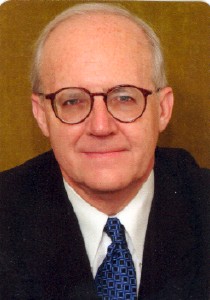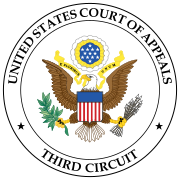
The Religious Freedom Restoration Act of 1993, Pub. L. No. 103-141, 107 Stat. 1488, codified at 42 U.S.C. § 2000bb through 42 U.S.C. § 2000bb-4, is a 1993 United States federal law that "ensures that interests in religious freedom are protected." The bill was introduced by Congressman Chuck Schumer (D-NY) on March 11, 1993. A companion bill was introduced in the Senate by Ted Kennedy (D-MA) the same day. A unanimous U.S. House and a nearly unanimous U.S. Senate—three senators voted against passage—passed the bill, and President Bill Clinton signed it into law.
Church of the Lukumi Babalu Aye, Inc. v. Hialeah, 508 U.S. 520 (1993), was a case in which the Supreme Court of the United States held that an ordinance passed in Hialeah, Florida, forbidding the "unnecessar[y]" killing of "an animal in a public or private ritual or ceremony not for the primary purpose of food consumption", was unconstitutional.
The Free Exercise Clause accompanies the Establishment Clause of the First Amendment to the United States Constitution. The Establishment Clause and the Free Exercise Clause together read:
Congress shall make no law respecting an establishment of religion, or prohibiting the free exercise thereof...

The Religious Land Use and Institutionalized Persons Act (RLUIPA), Pub.L. 106–274 (text)(PDF), codified as 42 U.S.C. § 2000cc et seq., is a United States federal law that prohibits the imposition of burdens on the ability of prisoners to worship as they please and gives churches and other religious institutions a way to avoid zoning law restrictions on their property use. It also defines the term "religious exercise" to include "any exercise of religion, whether or not compelled by, or central to, a system of religious belief." RLUIPA was enacted by the United States Congress in 2000 to correct the problems of the Religious Freedom Restoration Act (RFRA) of 1993. The act was passed in both the House of Representatives and the Senate by unanimous consent in voice votes, meaning that no objection was raised to its passage, so no written vote was taken. The S. 2869 legislation was enacted into law by the 42nd President of the United States Bill Clinton on September 22, 2000.
Employment Division, Department of Human Resources of Oregon v. Smith, 494 U.S. 872 (1990), is a United States Supreme Court case that held that the state could deny unemployment benefits to a person fired for violating a state prohibition on the use of peyote even though the use of the drug was part of a religious ritual. Although states have the power to accommodate otherwise illegal acts performed in pursuit of religious beliefs, they are not required to do so.

Danny Julián Boggs is an American attorney and a Senior United States Circuit Judge of the United States Court of Appeals for the Sixth Circuit. He was appointed to the court in 1986 and served as its Chief Judge from September 2003 to August 2009. Boggs was on the short list of President George W. Bush's candidates for the U.S. Supreme Court.
Sherbert v. Verner, 374 U.S. 398 (1963), was a case in which the Supreme Court of the United States held that the Free Exercise Clause of the First Amendment required the government to demonstrate both a compelling interest and that the law in question was narrowly tailored before it denied unemployment compensation to someone who was fired because her job requirements substantially conflicted with her religion.

David Brookman Smith, known professionally as D. Brooks Smith, is a Senior United States Circuit Judge of the United States Court of Appeals for the Third Circuit. He was previously Chief Judge of both the United States Court of Appeals for the Third Circuit and the United States District Court for the Western District of Pennsylvania, and is the only judge in the history of the Third Circuit to have served as both a chief district judge and chief of the Court of Appeals. Beginning January 2022, Smith will begin to serve as Penn State Law's new jurist in residence.
Hein v. Freedom From Religion Foundation, 551 U.S. 587 (2007), was a decision by the United States Supreme Court which ruled that taxpayers do not have the right to challenge the constitutionality of expenditures by the executive branch of the government. The issue was whether taxpayers have the right to challenge the existence of the White House Office of Faith-Based and Community Initiatives. The case centered on three Supreme Court precedents: Flast v. Cohen, Bowen v. Kendrick, and Valley Forge Christian College v. Americans United for Separation of Church & State.
Texas Monthly v. Bullock, 489 U.S. 1 (1989), was a case brought before the US Supreme Court in November 1988. The case was to test the legality of a Texas statute that exempted religious publications from paying state sales tax.
Goldman v. Weinberger, 475 U.S. 503 (1986), was a United States Supreme Court case in which a Jewish Air Force officer was denied the right to wear a yarmulke when in uniform on the grounds that the Free Exercise Clause applies less strictly to the military than to ordinary citizens.
The ministerial exception, sometimes known as the "ecclesiastical exception," is a legal doctrine in the United States barring the application of anti-discrimination laws to religious institutions' employment relationships with its "ministers." As explained by the Supreme Court in the landmark case Hosanna-Tabor Evangelical Lutheran Church and School v. E.E.O.C., the exception is drawn from the First Amendment to the United States Constitution, and seeks to both (1) safeguard religious groups' "freedom. .. to select their own ministers," a principle rooted in the Free Exercise Clause, and (2) prevent "government involvement in [] ecclesiastical decisions," a prohibition stemming from the Establishment Clause. When applied, the exception operates to give religious institutions an affirmative defense when sued for discrimination by employees who qualify as "ministers;" for example, female priests cannot sue the Catholic church to force their hiring. However, exactly which types of employees should qualify as a "ministers," and thus how broadly the exception should apply, was the subject of recent litigation before the Supreme Court.
Mueller v. Allen, 463 U.S. 388 (1983), was a United States Supreme Court case examining the constitutionality of a state tax deduction granted to taxpaying parents for school-related expenses, including expenses incurred from private secular and religious schools. The plaintiffs claimed that a Minnesota statute, allowing tax deductions for both public and private school expenses, had the effect of subsidizing religious instruction since parents who paid tuition to religious schools received a larger deduction than parents of public school students, who incurred no tuition expenses.
Burwell v. Hobby Lobby Stores, Inc., 573 U.S. 682 (2014), is a landmark decision in United States corporate law by the United States Supreme Court allowing privately held for-profit corporations to be exempt from a regulation its owners religiously object to, if there is a less restrictive means of furthering the law's interest, according to the provisions of the Religious Freedom Restoration Act of 1993. It is the first time that the court has recognized a for-profit corporation's claim of religious belief, but it is limited to privately held corporations. The decision does not address whether such corporations are protected by the free-exercise of religion clause of the First Amendment of the Constitution.
Reed v. Town of Gilbert, 576 U.S. 155 (2015), is a case in which the United States Supreme Court clarified when municipalities may impose content-based restrictions on signage. The case also clarified the level of constitutional scrutiny that should be applied to content-based restrictions on speech. In 2005, Gilbert, Arizona adopted a municipal sign ordinance that regulated the manner in which signs could be displayed in public areas. The ordinance imposed stricter limitations on signs advertising religious services than signs that displayed "political" or "ideological" messages. When the town's Sign Code compliance manager cited a local church for violating the ordinance, the church filed a lawsuit in which they argued the town's sign regulations violated its First Amendment right to the freedom of speech.
Zubik v. Burwell, 578 U.S. ___ (2016), was a case before the United States Supreme Court on whether religious institutions other than churches should be exempt from the contraceptive mandate, a regulation adopted by the United States Department of Health and Human Services (HHS) under the Affordable Care Act (ACA) that requires non-church employers to cover certain contraceptives for their female employees. Churches are already exempt under those regulations. On May 16, 2016, the Supreme Court vacated the Court of Appeals ruling in Zubik v. Burwell and the six cases it had consolidated under that title and returned them to their respective courts of appeals for reconsideration.
Heffernan v. City of Paterson, 578 U.S. ___ (2016), was a United States Supreme Court case in 2016 concerning the First Amendment rights of public employees. By a 6–2 margin, the Court held that a public employee's constitutional rights might be violated when an employer, believing that the employee was engaging in what would be protected speech, disciplines them because of that belief, even if the employee did not exercise such a constitutional right.
Trump v. Hawaii, No. 17-965, 585 U.S. ___ (2018), was a United States Supreme Court case involving Presidential Proclamation 9645 signed by President Donald Trump, which restricted travel into the United States by people from several nations, or by refugees without valid travel documents. Hawaii and several other states and groups challenged the Proclamation and two predecessor executive orders also issued by Trump on statutory and constitutional grounds. Citing a variety of statements by Trump and administration officials, they argued that the proclamation and its predecessor orders were motivated by anti-Muslim animus.
Trinity Lutheran Church of Columbia, Inc. v. Comer, 582 U.S. ___ (2017), was a case in which the Supreme Court of the United States held that a Missouri program that denied a grant to a religious school for playground resurfacing, while providing grants to similarly situated non-religious groups, violated the freedom of religion guaranteed by the Free Exercise Clause of the First Amendment to the United States Constitution.
Fulton v. City of Philadelphia, 593 U.S. ___ (2021) was a United States Supreme Court case dealing with litigation over discrimination of local regulations based on the Free Exercise Clause and Establishment Clause of First Amendment to the United States Constitution. The specific case deals with a religious-backed foster care agency that was denied a new contract by the City of Philadelphia, Pennsylvania due to the agency's refusal to provide service to married same-sex couples on religious grounds.



